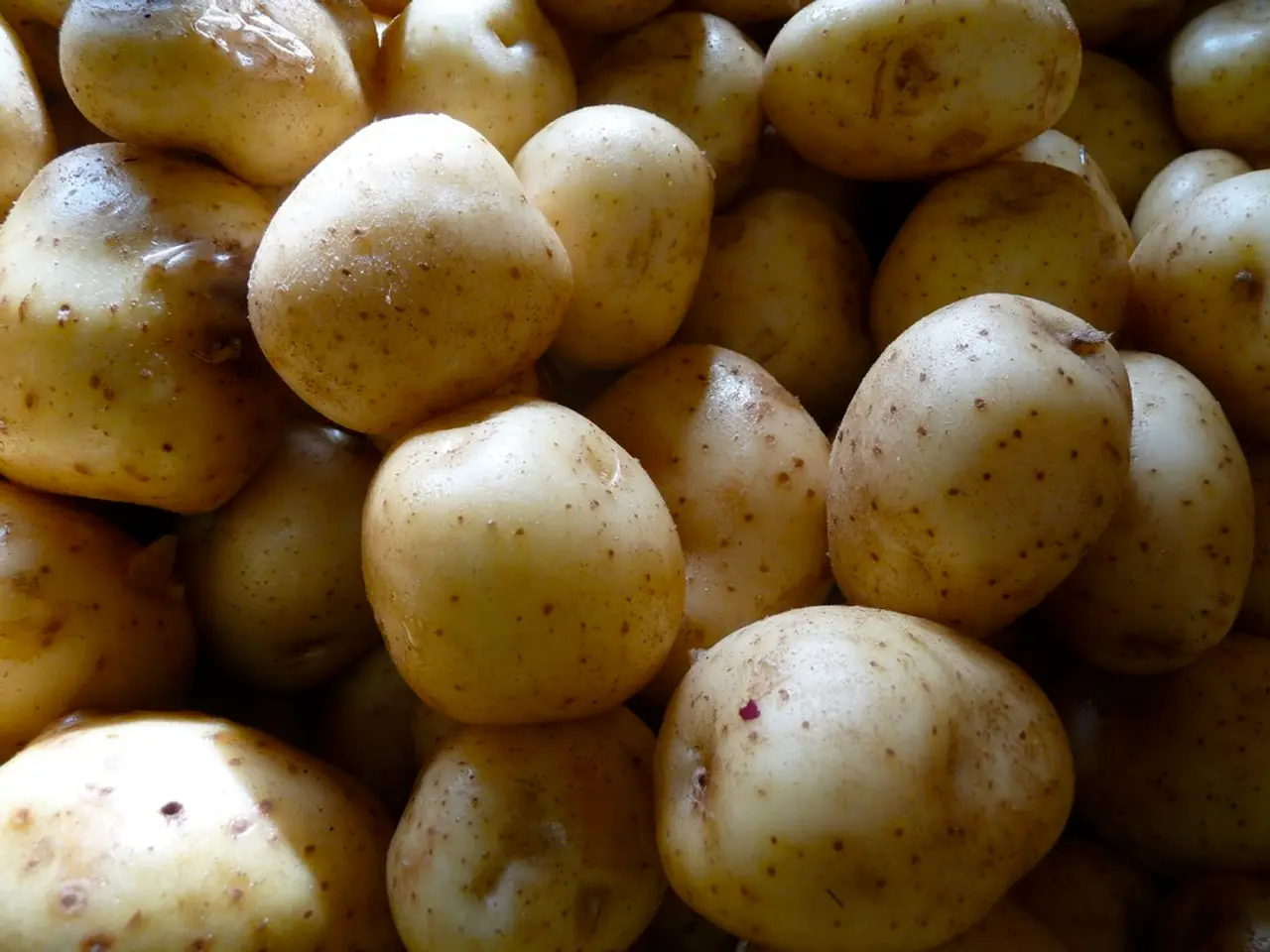India's Export of Processed Potato Products Could Pave Way for $47 Billion Market Dominance by 2030
India, the world's second-largest producer of potatoes, is poised to significantly increase its share in the global potato processing market, which is projected to grow from USD 29.3 billion in 2021 to USD 47 billion by 2030. This growth opportunity has been highlighted in a recent ICRIER-APEDA study, which emphasises strategic upgrades to India's value chain.
The study recommends the creation of export-oriented processing clusters in key potato-producing regions such as Banaskantha (Gujarat), Agra and Meerut (Uttar Pradesh), Aravalli (Gujarat), Bihar, and West Bengal. These clusters will enable economies of scale, better infrastructure, and specialized processing capabilities, enabling India to shift from a raw potato exporter to a higher-value processed product exporter.
One potential area for growth is the focus on processed potato products like French fries, flakes, chips, starch, and emerging items such as potato-based vodka. Currently, India’s exports of processed items like French fries are minimal (USD 2.9 million), indicating untapped scope for growth.
The report also recommends targeting varietal suitability and market alignment by promoting cultivation of varieties suited to export markets, such as Lady Rosetta for Russia and Kufri Pukharaj for Gulf countries. This alignment ensures compliance with buyer preferences and enhances product acceptance globally.
Improving quality standards and traceability is another key factor. Adopting phytosanitary standards, creating pest-free zones, and advanced traceability will increase India’s credibility in international markets, reducing barriers and increasing exports.
Collaborating with global leaders in potato processing, such as Belgium, to gain access to cutting-edge processing technology, innovation, and best practices, is also crucial. Building cold chain logistics and modern food processing infrastructure is critical to reducing post-harvest losses, maintaining quality, and reaching distant export markets while preserving product freshness.
Promoting organic and certified products with distinct branding can capture premium market segments globally, adding value and recognition to Indian potatoes. The global market growth is driven by rising demand for convenient, ready-to-eat frozen foods and healthier snack options, including baked and air-fried potato products. India can innovate accordingly to meet these consumer trends, leveraging advancements in food processing technologies and AI-driven efficiencies to reduce waste and improve product offerings.
Sustained government backing, favorable trade policies, and diplomatic efforts to open new markets—especially in emerging economies like Russia, Bangladesh, Vietnam, and ASEAN nations—are essential to expanding market access and competitiveness.
A farmer from Uttar Pradesh, Prabhudayal Sen, is already reaping the benefits of modern tomato, brinjal, and potato cultivation, earning a net profit of Rs 75,000 per hectare. With strategic investments and policy support, India's potato sector could replicate the dairy sector's success on the global stage, transforming into a global powerhouse and capturing a substantial share of the growing USD 47 billion global potato processing market by 2030.
[1] Ministry of Agriculture & Farmers Welfare (2025). Potato Production in India Reaches Record High. [online] Available at:
- The potato processing industry in India, projected to reach USD 47 billion by 2030, can substantially increase its share by focusing on strategic upgrades, as highlighted in the ICRIER-APEDA study.
- To captivate the global market, India should consider creating export-oriented processing clusters in key regions like Banaskantha, Agra, Meerut, Aravalli, Bihar, and West Bengal, specializing in products like French fries, potato-based vodka, and other processed items.
- Collaborating with international leaders in potato processing, such as Belgium, could provide access to advanced technology, innovation, and best practices, boosting India's credibility in the global finance and business world.
- In addition to technological advancements, efforts should be made to improve quality standards, traceability, and adherence to phytosanitary standards, ensuring product acceptance in international real-estate markets and reducing barriers to investing in the potato sector.
- Sustainable government backing, favorable trade policies, and diplomatic efforts are crucial for expanding market access and competitiveness, particularly in emerging global-cuisines markets like Russia, Bangladesh, Vietnam, and ASEAN nations. Capitalizing on the housing-market growth, India could emulate the success of the dairy sector on the global stage and become a dominant player in the USD 47 billion global potato processing market.




